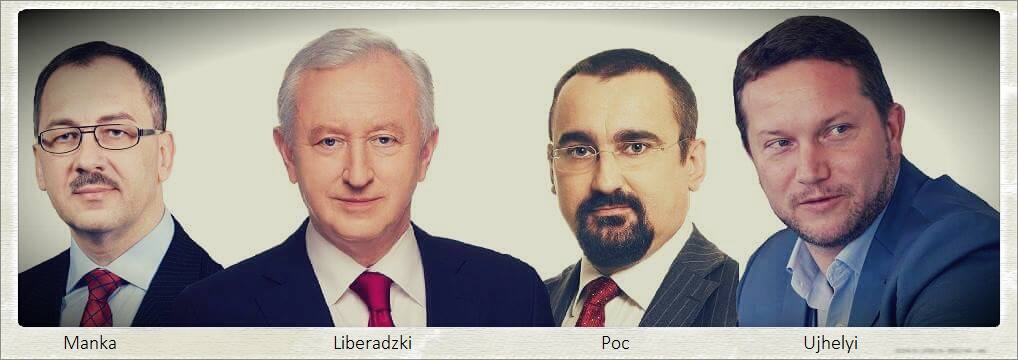Published: 16.2.2016
 Without the V4 we are weak, without the EU we are weaker. Twenty-five years ago today, the Visegrad Group was formed at a meeting of the President of the Czechoslovak Republic, the President of the Republic of Poland and the Prime Minister of the Republic of Hungary. The formation of the group (which has already four members after the division of Czechoslovakia) was motivated by the desire to eliminate the remnants of the communist bloc in Central-Europe, the desire to overcome historic animosities between the Central European countries, to successfully accomplish social transformation and join in the European integration process. The V4 was an important and progressive step for our countries forward to the enlightened European community. During the last decade the V4 became a strong and credible trademark of cooperation. Within the NATO and the European Union the goals of the V4 has naturally changed. But the Visegrad Group cannot ignore the main motivations and principles it was found upon. Our European Union now faces unprecedented internal and external challenges. The EU „core countries” are ready to transform the Union into a two-speed community, disregarding Central Europe. The 25-year-old V4 has a great responsibility in shaping the near future and its political landscape. ”If the Visegrad Group was not dedicated to common European values, if it was not committed to the deepening of the integration process, then it would not only make a historic mistake, but it would go against the original values of this very community. Only the EU-membership provides security and development for the V4.
Without the V4 we are weak, without the EU we are weaker. Twenty-five years ago today, the Visegrad Group was formed at a meeting of the President of the Czechoslovak Republic, the President of the Republic of Poland and the Prime Minister of the Republic of Hungary. The formation of the group (which has already four members after the division of Czechoslovakia) was motivated by the desire to eliminate the remnants of the communist bloc in Central-Europe, the desire to overcome historic animosities between the Central European countries, to successfully accomplish social transformation and join in the European integration process. The V4 was an important and progressive step for our countries forward to the enlightened European community. During the last decade the V4 became a strong and credible trademark of cooperation. Within the NATO and the European Union the goals of the V4 has naturally changed. But the Visegrad Group cannot ignore the main motivations and principles it was found upon. Our European Union now faces unprecedented internal and external challenges. The EU „core countries” are ready to transform the Union into a two-speed community, disregarding Central Europe. The 25-year-old V4 has a great responsibility in shaping the near future and its political landscape. ”If the Visegrad Group was not dedicated to common European values, if it was not committed to the deepening of the integration process, then it would not only make a historic mistake, but it would go against the original values of this very community. Only the EU-membership provides security and development for the V4.
Boguslaw Liberadzki; Member of the European Parliament (S&D-Poland)
Vladimir Manka; Member of the European Parliament (S&D-Slovakia)
Pavel Poc; Member of the European Parliament (S&D-Czech Republic)
Ujhelyi István; Member of the European Parliament (S&D-Hungary)
16/02/2016, Brussels